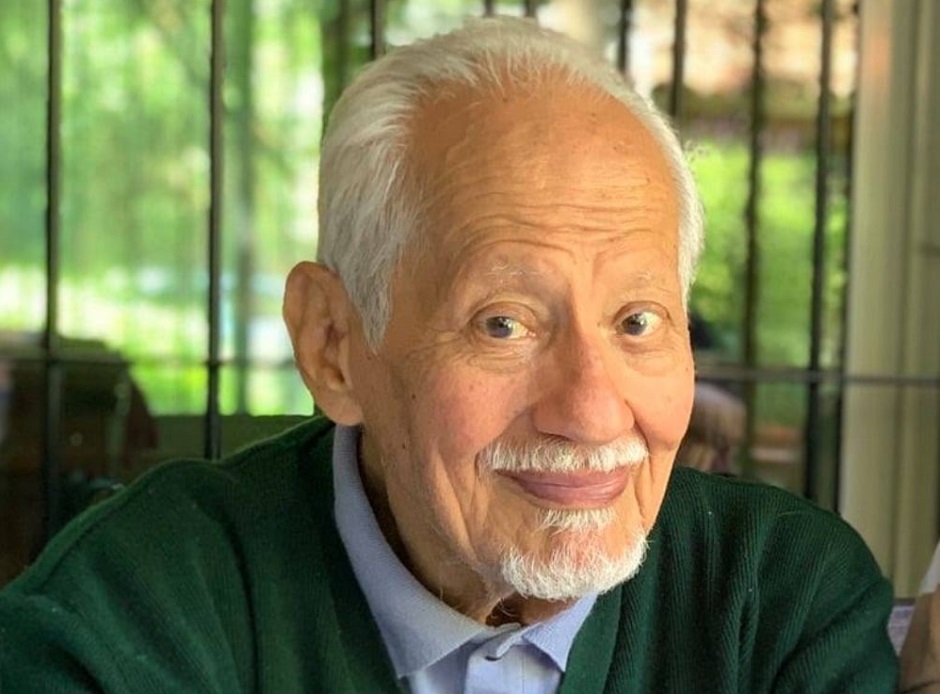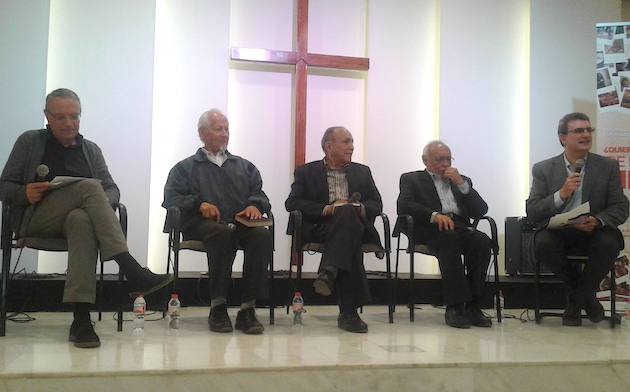Only by reading today with the eyes of faith the new challenges facing humanity can we better understand the renewed obedience to the Word and the creativity that the Lord demands now. In that sense, René Padilla was a theologian who responded to his time.
 René Padilla. / Photo: Ruth Padilla DeBorst.
René Padilla. / Photo: Ruth Padilla DeBorst.
On April 27, I read with great joy an email in which the Peruvian pastor and theological educator Pedro Arana informed us that his book had just been published in Lima. Ciudadanos del Reino (Citizens of the Kingdom) is an exposition on the Epistle to the Philippians.
That same day, in Buenos Aires, Argentina, our mutual friend, René Padilla, had passed into the presence of the Lord and I confess that for a moment I was filled with sadness. However, after a few moments of reflection, that sadness changed into gratitude to God for a life devoted to His service.
In some of our more recent encounters, René had expressed the confidence that the Lord would help him to persevere until the end. His remarkable perseverance can be seen in the number of theological books that he has published, his own - and also those of others. This is seen in the more than one hundred Latin American evangelical writers whom he managed to bring together for the compilation and publication of the monumental Comentario Bíblico Contemporáneo (Contemporary Biblical Dictionary) with its 1,689 large pages, published in 2019 by an editorial consortium comprised of: Certeza Unida, Ediciones Kairós, Andamio of España, Certeza Argentina, Ediciones Puma and Editorial Lámpara.
In 1958, during an initial meeting of seventeen University Biblical Groups that had emerged in 9 Latin American countries, the professor and journalist Alejandro Clifford, from the University of Córdoba in Argentina, was asked to create an evangelical publishing house to issue a quarterly magazine and books. They would be addressed to Christian university students but they should be as well accessible in language and style to any other Latin American student. It was the beginning of the magazine Certeza (Certainty) and Ediciones Certeza. When Clifford retired, René Padilla inherited the responsibility from him and he has more than fulfilled it.

[photo_footer] René Padilla, Samuel Escobar and Pedro Aran (the three in the centre) in a event about mission in Barcelona, Spain, 2016. / Photo: Movimiento Lausana España.[/photo_footer] In Spain, the Grupos Bíblicos Universitarios (University Biblical Groups) led by Francisco Mira took on this ministry and continued to carry it out through Ediciones Andamio, responding to the needs of the new generations.
René Padilla was Ecuadorian and had grown up in Colombia. Pedro Arana, who is Peruvian like me, had become accustomed to the cloudy and humid city of Lima, where nevertheless the evangelical university groups flourished and continue to contribute to the life of the churches.
René graduated from Wheaton College in the United States where he discovered a theological vocation and then went on to do a doctorate in New Testament with professor F.F. Bruce at the University of Manchester. Pedro Arana was a chemical engineer and when he discovered his theological vocation he decided to go to Edinburgh, to the Seminary of the Free Church of Scotland, that was linked to the San Andrés College of Lima, Peru in which he had been trained. The college had been founded by Juan A. Mackay, who later became Rector of the Princeton Presbyterian Seminary in the United States and a great figure in the world of theology.
When I began my doctoral studies in Madrid, instead of starting a theological career, I decided to continue with my work in Pedagogy and Latin American Literature with which I have endeavored to serve the people of God. My doctoral thesis in Madrid dealt with the Brazilian educator Paulo Freire.
[destacate]René Padilla was a theologian who responded to his time[/destacate]On his return from his doctoral studies, René worked in a time in which the US evangelist Billy Graham had succeeded in communicating to the evangelical world a certain zeal for evangelization. One of Graham’s biographies tells of how difficult it was for Graham to accept Pentecostals as Oral Roberts. But in a truly providential way, from the encounter of evangelicals with such calibre and variety of experiences was to later emerge the Lausanne Movement.
Let us not forget that the European churches were coming from the experience of the Second World War but the young churches of Asia, Africa came from an experience of liberation from colonialism. And those of Latin America came from a continent affected by the Cuban revolution and the ‘guerrillas’.
Only by understanding the historical moment and the decision to confront it creatively can the Lausanne Covenant and the Lausanne Response be understood.
And only by reading today with the eyes of faith the new challenges facing humanity can we better understand the renewed obedience to the Word and the creativity that the Lord demands now. In that sense, René Padilla was a theologian who responded to his time.
Samuel Escobar, Peruvian theologian, author, and friend of C. René Padilla.

Las opiniones vertidas por nuestros colaboradores se realizan a nivel personal, pudiendo coincidir o no con la postura de la dirección de Protestante Digital.
Si quieres comentar o